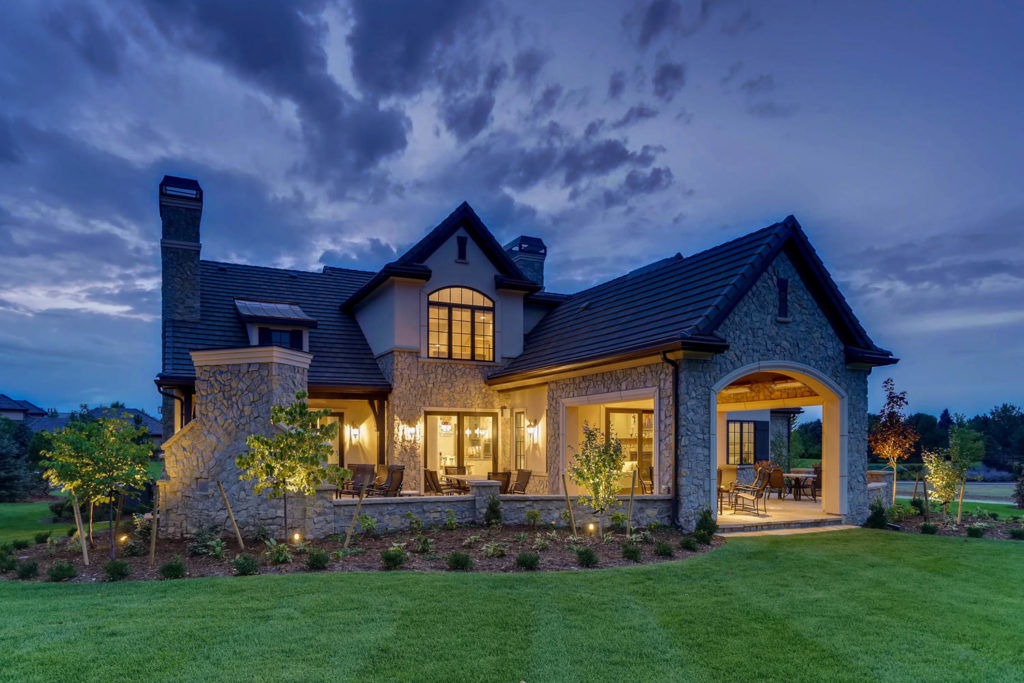Shopping for a home for yourself and your family is no simple task. There are countless factors to take into consideration, including the needs of each family member, water quality, air quality, neighbourhood, home size, price, repairs or renovations needed and the feeling you get when you walk through the space. It’s a daunting undertaking especially considering you’re balancing all these needs and factors with things like the market, making the biggest financial choice of your life, and sometimes aggressive negotiation periods.
Moreover, it’s easy to get disheartened when you put in the effort for an offer and are rejected time after time; the longer the search goes on, the more likely you are to feel the urge to just get whatever you can, even if it’s not the right fit.
The following will explore a few of the major indicators that you’ve found the right home for you and your family. The goal here is to figure out what you and your family need to thrive and to find a home that meets those needs.
It’s In Your Price Range
This is a big one that cannot be overlooked. It’s far too easy in the current market to get swept up in visions of your life in a lovely home and end up paying far more than you meant to as a result of a lengthy negotiation period or extreme impatience driven by a competitive market. Before you begin the hunt, it’s ideal to set a firm upper limit on what you can spend. If you’re already in the middle of a search and don’t have your limit figured out, then pause for a moment and come up with a number that is the maximum you’re willing to spend. Be sure to speak to your partner and any other people in your household that will be contributing towards the mortgage.
It’s important to note that this upper limit shouldn’t necessarily be the most you can afford but the most you can comfortably afford. There’s often a major difference in those numbers. Being house poor is one of the fastest ways to fall out of love with your house. If making the mortgage payments is a constant strain, if it limits you from being able to take off sick days when you need them, if it prevents you from paying for the comforts you and your family need for mental well-being like heating and air conditioning, if it makes the prospect of a surprise like your car breaking down, you kid chipping a tooth, or a pregnancy terrifying, you’re going to get miserable really fast.
Financial struggles are a major cause of relationship problems, unhealthy stress levels, and general unhappiness, and children are fantastic at sensing and being affected by these things in their parents. Don’t assume you’re going to be making more money in the future. Don’t assume you can handle spending 20% less on groceries each month with some meal planning.
It’s important to ask yourself tough questions like: could we afford this if we suddenly found ourselves with another baby? Could we afford this if one of us lost our job? How long could you manage to pay for the home on a single income while one of you looks for another job? Can we afford this and also be putting the appropriate amount of money away for retirement, kids’ education, and other family goals like vacations and renovations? You’re making a big commitment when you take on a mortgage, and while there are no guarantees about the future, you can bet that it’s going to involve lots of shifts and changes.

It’s In A Good Neighbourhood
A home isn’t just a purchase, it’s an investment, and this means that the neighbourhood plays a major role in whether your investment makes gains. Beyond this, the location of a home influences factors that strongly impact happiness like commute times to work and school, education options for children and teens, feelings of safety, work prospects for youth who might want to get a part-time job, and even your health. It also affects the chances of you and your family encountering a crime.
Foremost, take a moment to research the neighbourhood in question in regards to the health impacts. How do they treat their water supply? Many townships use chlorine to shock the water they provide, and recent studies are finding a link between chlorinated tap water and cancer. Will you need to get a water filter?
Look up the air quality index for the neighbourhood as well. Your respiratory health is directly affected by the quality of the air. Consider whether there are any farms nearby, as pesticide runoff drastically increases the chances of chronic illness for people who live near farms. Visit the local grocery stores and see if the healthy foods you like and need are available.
Look into health and wellness amenities that your family needs or desires, like hospitals, yoga studios, trails, and access to nature. More green space, as seen in homes for sale in Ottawa, Canada, as an example, is usually ideal. Seeing trees or green spaces contribute heavily to feelings of calm and well-being, which can help any family at any stage of life.
You’re also going to want to drive around the neighbourhood at all hours of the day to get a feeling for how the neighbourhood feels safety-wise. You might discover that the neighbour has a frightening dog that’s never on a leash and always running into your yard. You might discover that on Friday nights, the area’s vibe changes radically. While you’re at it, look up the crime statistics. While you’re at it, take a moment to scroll through any local Facebook pages. Many neighbourhoods or townships have a Facebook group where people share things with one another; this will give you a good idea of how people treat each other (and newcomers to the town) as well as what common issues arise.
Finally, consider the neighbourhood in relation to everyone’s daily tasks. This means accounting for commute times for everyone who is working or attending school, job prospects, options like daycare or afterschool care if those are needed, and the standard amenities you use. You want a location that gives you and your family comfortable access to what everyone needs.
The Home Itself Meets Your Needs
Every family has a different range of needs. You’re balancing several personalities that all need to share and hopefully thrive within a space. It helps if you make a checklist of things a home needs before you start searching. If you’re in the middle of searching, pause for half an hour and brainstorm a checklist with your partner.
Your checklist should include:
- Enough space for everyone
- A list of repairs or renovations that feels manageable to you and your partner; if the home is going to take three years and learning eighteen new skills mastered to get into the right condition, you both need to be on board with that; it’s important not to overestimate your abilities here, you still need downtime outside of work and renovations to relax which means on a typical work week, you’re probably getting one and a half days of renovation work done at the max
- Affordable utilities and other bills—how much is the home actually going to cost, and are there any insulation considerations that can help that (you can ask the current owner what they pay)
- Room for your family to grow if that’s in the plan (and honestly, even if it’s not, life is full of surprises)
- Enough storage to keep everyone sane and allow the home to stay relatively tidy
- A decent amount of natural light; while you might not think about it if you’ve had lots of natural light in previous homes, small windows and minimal sunlight filtering in can drastically increase risks for depression as sunlight, and vitamin D are vital for happiness
- A kitchen that meets your space needs
- Enough bathrooms that people won’t be fighting over bathroom time
- A driveway, garage or parking space scenario that meets your parking needs
- Proximity to things you need; if you suddenly need to travel an extra twenty minutes to get your favourite coffee or run into the grocery store because the kids ate all the school snacks, you can bet that there are going to be days when this wears on your spirits
- Maintenance required; chores are part of life, but how much time you spend on chores can be influenced by the home you buy; make sure you and your partner are on the same page with expectations about how everything will be maintained and eliminate any properties that require too much yard work, home maintenance, cleaning, or has elements like a pool that require work you just don’t have the time to give
Once you’ve compiled a list of the things your home needs to have to serve its purpose, you can compile a list of things you and other people in your household would really like a home to have. This might include a backyard big enough for the kids to run around in, a separate laundry room so you can hide the laundry mountain while you work from home in order to protect your sanity, natural elements like mountains, rivers, or lakes nearby, a playground within walking distance, and a workshop or office space.
You can also ask children to write down three things they would like in a home and consider adding those to the list (obviously, an indoor jungle gym might be out of the question, but your teen might request their own bedroom, or another child might want an extra room where homework can be done quietly as the kitchen table isn’t working for them). Put everyone’s wants down on this list but keep in mind that these are wants, not needs, so it’s important that you don’t sacrifice something on your needs list for something on your wants list.

Everyone In The Family Likes It
This is a tough one, especially if you’ve got a lot of family members to run your decision by, but it is vital. Moving is emotional for everyone involved, and it can be particularly hard on children as they have so little choice in where they live. Take the time to carefully gauge everyone’s feelings about a particular home.
Beyond everyone’s feelings about the home, you also want to feel everyone’s responses to the property, including any yard space, the neighbourhood, or any neighbourhood amenities that are available. The more you include children in the exploration of the neighbourhood, the more likely they are to feel like part of the decision-making process and so have positive feelings about the new house and the new life you’re all building together.
At the end of the day, the final decision is going to be made based on feeling. If a place meets your needs and has the potential to be your new home, take a moment to imagine yourself living in the space. Walk around and turn on all the taps. Bend over like you’re loading the dishwasher. Imagine carrying the laundry from where the washers are to where you’ll be folding to where you’ll be putting things away.
What will your day-to-day life look like at the home? How close are you to relatives or friends you want to see often? How close are your children to their friends? What will the flow of your life look like in the space? How do you feel when you imagine all this?
While most of the time humans don’t want to think of themselves as animals, we are animals. We have instincts and intuition. Don’t buy a home that feels off or wrong. Don’t buy a home simply because you’re stressed about the process and what it to be over with already. Don’t buy a home because someone else thinks it’s a great buy. Get quiet and listen to your inner voice. Ask yourself whether the home feels right. If it doesn’t, move on. If it does, there’s a good chance it will be the right home for you and your family.
The above information should help you navigate the muddy waters of buying a home in today’s market. A purchase that is as expensive as a home is one that can be frightening. You don’t want to be stuck with something you can’t afford, can’t thrive in, can’t handle, or don’t feel comfortable in. If you take the appropriate steps, you should be able to mitigate the risks associated with buying a home and end up with something that supports the growth, happiness, and stability of your family as you work your way through life’s many milestones.






